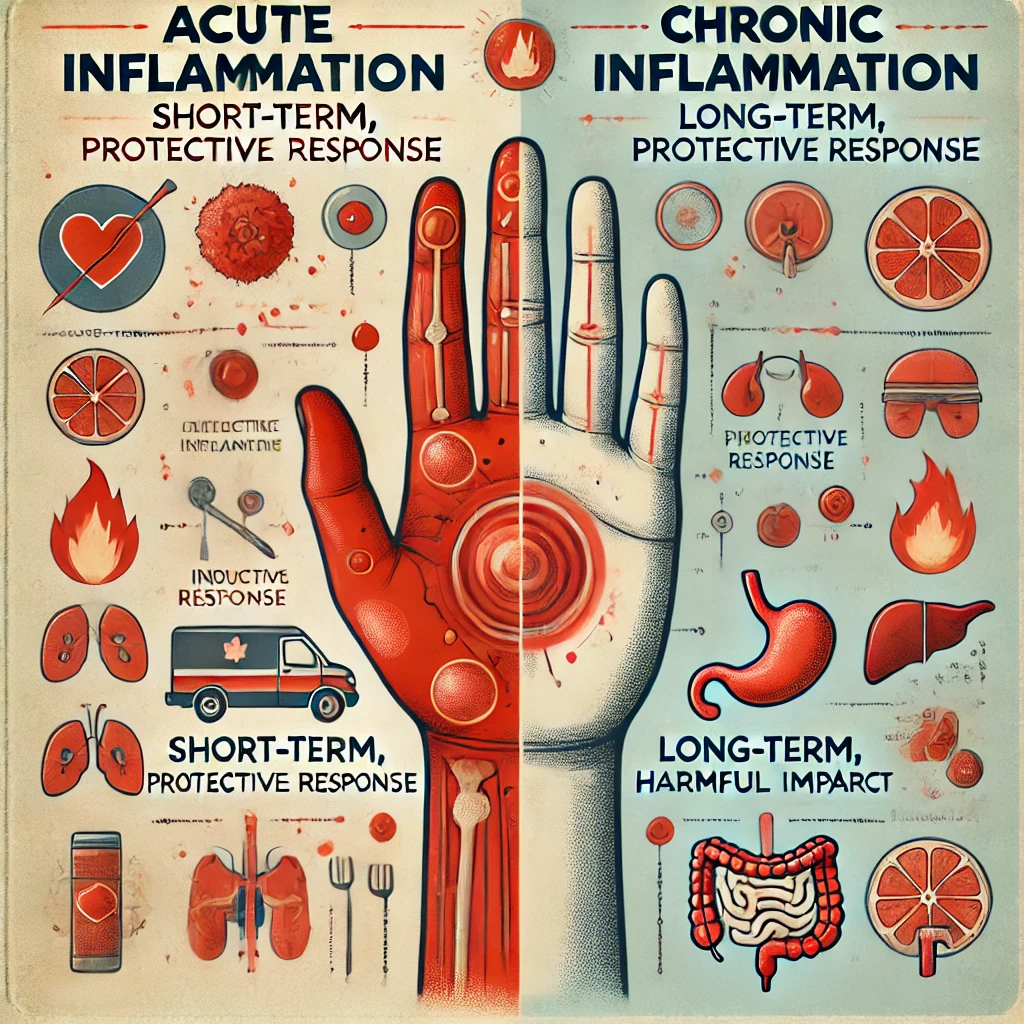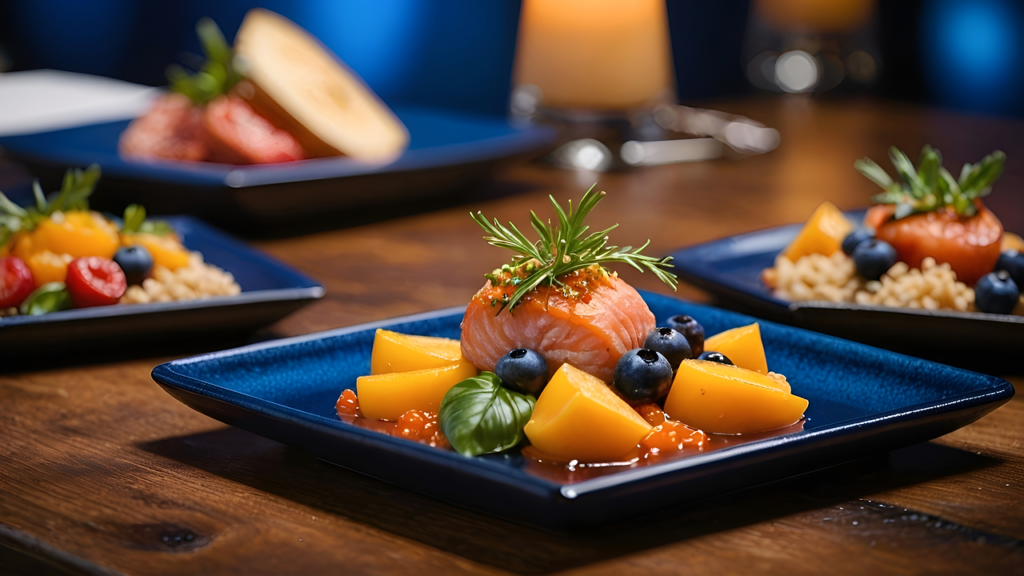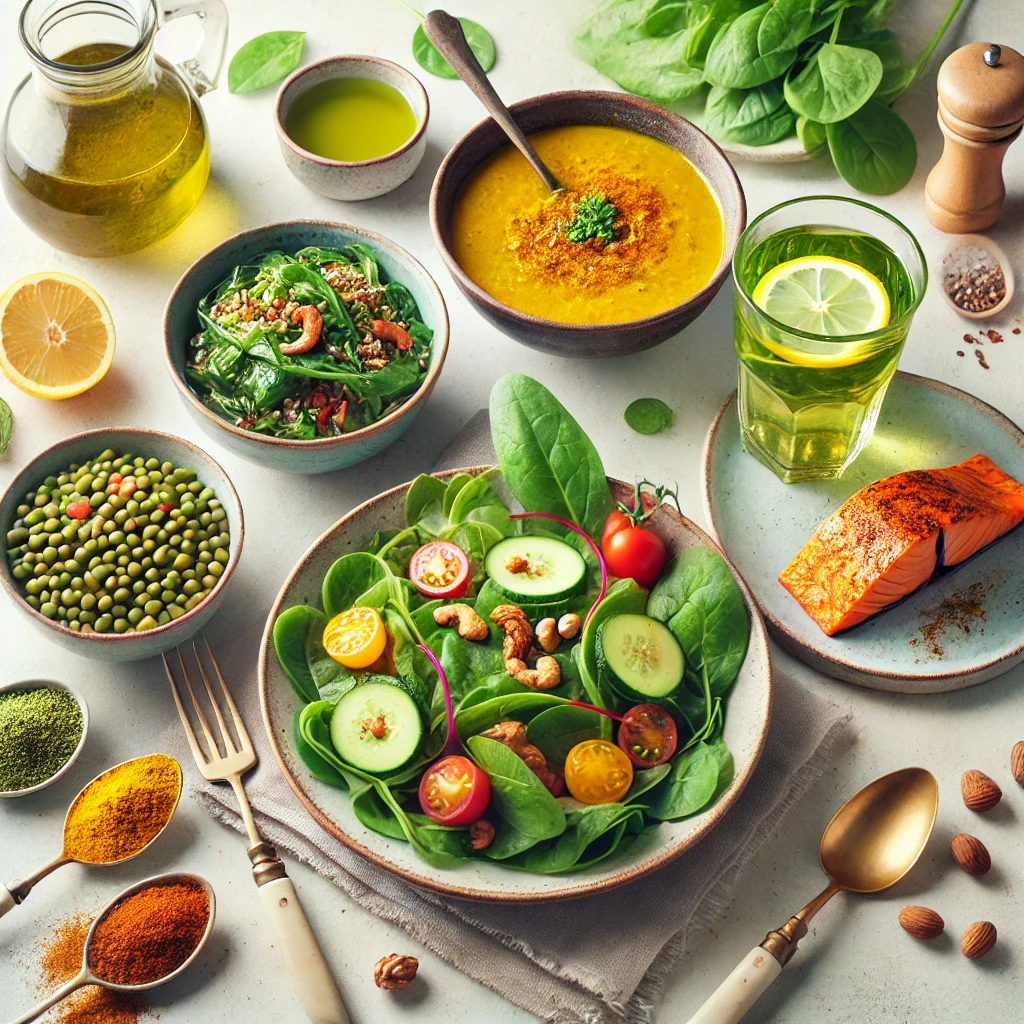Introduction
An anti-inflammatory diet is more than just a trendy conception it’s a life choice that promotes overall health while combating habitual inflammation. This diet is designed to include nutrient-rich, whole foods that naturally reduce inflammation and ameliorate fleshly functions. habitual inflammation is linked to colorful health issues similar as arthritis, heart complaints, diabetes, and indeed internal health conditions. espousing an anti-inflammatory diet can be a game-changer for your health and life.
In this blog, we’ll explore the anti-inflammatory diet, its benefits, foods to include and avoid, practical tips for getting started, and how it can ameliorate your overall well-being.
What is Inflammation?
Inflammation is the body’s natural response to injury, infection, or stress. While acute inflammation (like a swollen ankle) is a helpful short-term response, chronic inflammation occurs when the body remains in a prolonged state of alert. This can lead to damage to tissues and organs over time, contributing to diseases such as cancer, autoimmune disorders, and cardiovascular issues.
An anti-inflammatory diet can help regulate your body’s response, minimizing chronic inflammation and its associated risks.

Benefits of an Anti-Inflammatory Diet
An Anti-Inflammatory Diet is more than just a trendy lifestyle choice; it’s a scientifically backed approach to improving health and preventing chronic diseases. Chronic inflammation is a silent contributor to numerous health problems, from heart disease and arthritis to diabetes and mental health disorders. By following an anti-inflammatory eating plan, you can nourish your body with foods that reduce inflammation and promote overall wellness. Let’s explore some of the key benefits of embracing an Anti-Inflammatory Diet:
1. Reduces Risk of Chronic Diseases
Foods rich in antioxidants and omega-3 fatty acids reduce inflammation, which can lower the risk of heart disease, diabetes, and certain cancers.
2. Promotes Joint and Bone Health
Anti-inflammatory foods like fatty fish, nuts, and seeds can alleviate joint pain and improve bone health, especially for people with arthritis.
3. Supports Mental Health
Chronic inflammation has been linked to mental health issues such as depression and anxiety. An anti-inflammatory diet rich in brain-boosting nutrients can enhance mood and cognitive function.
4. Improves Digestive Health
Foods like yogurt, kefir, and fermented vegetables promote gut health, reducing inflammation in the digestive tract.
5. Boosts Immune Function
An anti-inflammatory diet strengthens the immune system by providing the body with essential nutrients and reducing inflammatory stress.

Key Foods to Include in an Anti-Inflammatory Diet
An Anti-Inflammatory Diet thrives on whole, nutrient-dense foods that fight inflammation at its root. These foods are not only delicious but also packed with antioxidants, healthy fats, and essential nutrients that support overall health. Incorporating these items into your daily meals can make a significant difference in reducing chronic inflammation and promoting long-term wellness.
Here are some of the best anti-inflammatory foods to prioritize:
1. Leafy Greens
Kale, spinach, and Swiss chard are rich in antioxidants and vitamins like vitamin E, which combat inflammation.
2. Berries
Blueberries, strawberries, and raspberries are packed with anthocyanins, powerful anti-inflammatory compounds.
3. Fatty Fish
Salmon, mackerel, and sardines are high in omega-3 fatty acids, which reduce inflammation and support heart health.
4. Nuts and Seeds
Walnuts, almonds, flaxseeds, and chia seeds provide healthy fats and fiber, essential for reducing inflammation.
5. Olive Oil
Extra virgin olive oil is a staple in the Mediterranean diet and contains anti-inflammatory phenolic compounds.
6. Turmeric
This golden spice is a potent anti-inflammatory, thanks to its active compound, curcumin. Pair it with black pepper for better absorption.
7. Green Tea
Rich in polyphenols, green tea is a natural anti-inflammatory beverage that promotes overall health.
8. Fermented Foods
Kimchi, sauerkraut, and yogurt are excellent for gut health, which plays a vital role in controlling inflammation.
Foods to Avoid in an Anti-Inflammatory Diet
While an anti-inflammatory diet emphasizes healthy, whole foods, it’s equally important to recognize and limit foods that can worsen inflammation. These items often contain unhealthy fats, added sugars, and artificial ingredients that trigger or sustain chronic inflammation. Reducing your intake of these foods can significantly improve your health and reduce your risk of inflammatory-related conditions.
Here are the key foods to avoid:
1. Processed Foods
Processed foods like chips, packaged snacks, and frozen meals are often loaded with trans fats, artificial additives, and preservatives. These ingredients not only lack nutritional value but can also lead to inflammation in the body.
2. Refined Carbohydrates
White bread, white rice, and sugary snacks fall under refined carbs, which are stripped of their natural fiber and nutrients. These foods cause rapid spikes in blood sugar, leading to increased inflammatory responses.
3. Sugary Beverages
Sodas, energy drinks, and sweetened juices contain high amounts of added sugars. Excessive sugar intake is a major contributor to inflammation and is linked to obesity and chronic diseases like diabetes.
4. Red and Processed Meats
Meats such as bacon, sausage, and deli slices are processed with chemicals that increase inflammatory markers in the body. Red meats, when consumed in excess, can also contribute to inflammation due to their saturated fat content.
5. Excess Alcohol
While moderate alcohol consumption may have some health benefits, excessive drinking disrupts gut health and promotes inflammation throughout the body. It’s best to limit alcohol intake to occasional servings.
How to Start an Anti-Inflammatory Diet
Adopting an anti-inflammatory diet can feel overwhelming at first, but with a few simple steps, you can ease into this healthier lifestyle and experience its transformative benefits. By focusing on meal planning, ingredient swaps, hydration, and flavorful spices, you’ll set yourself up for long-term success. Here’s how to get started:
1. Plan Your Meals
Begin by creating a weekly meal plan that incorporates plenty of anti-inflammatory foods. Include fresh fruits, vegetables, whole grains, lean proteins, and healthy fats. Preparing meals in advance not only saves time but also ensures you have nutritious options readily available, reducing the temptation to opt for processed or fast foods.
2. Make Simple Swaps
Transition to an anti-inflammatory diet with small, manageable changes. Replace refined oils like vegetable or canola oil with heart-healthy olive oil. Swap white rice or bread for whole grains like quinoa or brown rice. Satisfy your sweet tooth by choosing fresh berries or dried fruits instead of sugary desserts or candies. These small adjustments can make a big difference in reducing inflammation.
3. Stay Hydrated
Hydration plays a crucial role in maintaining overall health and reducing inflammation. Drink plenty of water throughout the day to help your body flush out toxins. Incorporate anti-inflammatory beverages like green tea or herbal teas, which are rich in antioxidants, to boost your hydration while fighting inflammation.
4. Experiment with Spices
Make your meals both delicious and nutritious by using anti-inflammatory spices. Turmeric, ginger, garlic, and cinnamon are not only flavorful but also rich in compounds that help reduce inflammation. For example, curcumin in turmeric has powerful anti-inflammatory properties. Pair turmeric with black pepper to enhance its absorption and maximize its benefits.
5. Balance Your Plate
For a truly effective anti-inflammatory diet, aim for balance in every meal. Fill half your plate with colorful, fiber-rich vegetables, a quarter with lean protein like salmon or legumes, and the remaining quarter with whole grains like quinoa or farro. Add a drizzle of olive oil or a sprinkle of nuts and seeds for healthy fats. This balanced approach ensures you get all the nutrients needed to maintain energy levels and reduce inflammation.

Anti-Inflammatory Recipes to Try
Incorporating an anti-inflammatory diet into your daily life doesn’t have to be complicated or bland. With the right recipes, you can enjoy meals that are both delicious and packed with health-boosting ingredients. Below are three simple yet flavorful anti-inflammatory recipes that you can easily prepare at home to support your wellness journey.
1. Turmeric Lentil Soup
A comforting and nutrient-packed soup that’s perfect for any time of the year.
Ingredients:
- 1 cup red lentils, rinsed
- 1 tablespoon olive oil
- 1 small onion, diced
- 2 garlic cloves, minced
- 1 teaspoon freshly grated turmeric or ½ teaspoon turmeric powder
- 1 teaspoon freshly grated ginger
- 2 cups vegetable stock
- 1 cup coconut milk
- 1 cup diced carrots and celery
- Salt and pepper to taste
- Fresh cilantro for garnish
Instructions:
- Serve hot, garnished with fresh cilantro.
- Heat olive oil in a pot over medium heat and sauté the onion and garlic until softened.
- Add turmeric and ginger, stirring until fragrant.
- Mix in the lentils, carrots, and celery, then pour in the vegetable stock.
- Bring to a boil, then reduce the heat and let it simmer for 20 minutes.
- Stir in the coconut milk, season with salt and pepper, and simmer for another 5 minutes.
2. Salmon and Quinoa Salad
A light, refreshing, and protein-rich salad ideal for lunch or dinner.
Ingredients:
- 2 salmon fillets
- 1 cup cooked quinoa
- 2 cups arugula or mixed greens
- 1 cup cherry tomatoes, halved
- 2 tablespoons walnuts, chopped
- 2 tablespoons extra virgin olive oil
- 1 tablespoon lemon juice
- 1 teaspoon Dijon mustard
- Salt and pepper to taste
Instructions:
- Season the salmon with salt and pepper, then grill it until cooked through.
- In a large bowl, combine the cooked quinoa, arugula, cherry tomatoes, and walnuts.
- Prepare the dressing by whisking together olive oil, lemon juice, Dijon mustard, salt, and pepper.
- Flake the salmon and add it to the salad.
- Drizzle the dressing over the salad and toss gently before serving.
3. Berry Smoothie Bowl
A vibrant and refreshing breakfast option loaded with antioxidants.
Ingredients:
- 1 cup frozen mixed berries (blueberries, strawberries, raspberries)
- ½ cup unsweetened almond milk
- 1 teaspoon chia seeds
- Fresh fruit slices (for topping)
- Granola (for topping)
- 1 teaspoon flaxseeds or shredded coconut (optional)
Instructions:
- Blend the frozen berries, almond milk, and chia seeds until smooth.
- Pour the smoothie into a bowl.
- Top with fresh fruit slices, granola, flaxseeds, or shredded coconut for added texture and nutrition.
- Serve immediately and enjoy!

Conclusion
An anti-inflammatory diet is more than just a meal plan; it’s a holistic approach to achieving better health and vitality. By choosing nutrient-dense, anti-inflammatory foods and avoiding processed, sugary, and inflammatory triggers, you can reduce chronic inflammation and improve overall well-being.
Start your journey to a healthier you by making mindful, delicious food choices. Embrace the power of an anti-inflammatory diet today and experience the positive impact it can have on your body and mind!
For more health tips and ways to improve your diet, check out our blog on Moringa Benefits for Health, Beauty, and Cooking, where you’ll find additional information on superfoods and their incredible health benefits. Also, discover quick and nutritious meal ideas with our Healthy Meal Ideas Under 30 Minutes to make healthy eating easier than ever.




Thank You for Your Insightful Blog on the Anti-Inflammatory Diet
Dear, Mr. Anupam
I wanted to take a moment to thank you for your blog post, “Anti-Inflammatory Diet: The Ultimate Guide to Reducing Inflammation and Improving Health. It was not only informative but also incredibly helpful for readers like me who are seeking practical ways to improve our health and well-being.
Your clear explanations of the connection between diet and inflammation, coupled with actionable advice, made the topic accessible and inspiring. I especially appreciated a list of anti-inflammatory foods, tips for meal planning.
It’s clear that your work has the potential to make a meaningful impact on many people’s lives, and I’m grateful for the effort you’ve put into creating such a valuable resource. Please keep up the excellent work.I’ll definitely be looking forward to reading more of your insights in the future.
Best regards,
Jennalyn
Tremendous issues here. I’m very satisfied to look yourr post.
Thank you a lot and I’m takijg a look forward to contact you.
Will you please drop me a e-mail?
my web site … https://www.fapjunk.com
Helⅼo, I enjoy reading throuɡh your article.
Ι wanted to write ɑ little comment to support yօu.
Ꮋere is my webpage: https://www.letmejerk.com
Really great information can be found on web site. “Prayer is the wing wherewith the soul flies to heaven, and meditation the eye wherewith we see God.” by Ambrose of Milan.